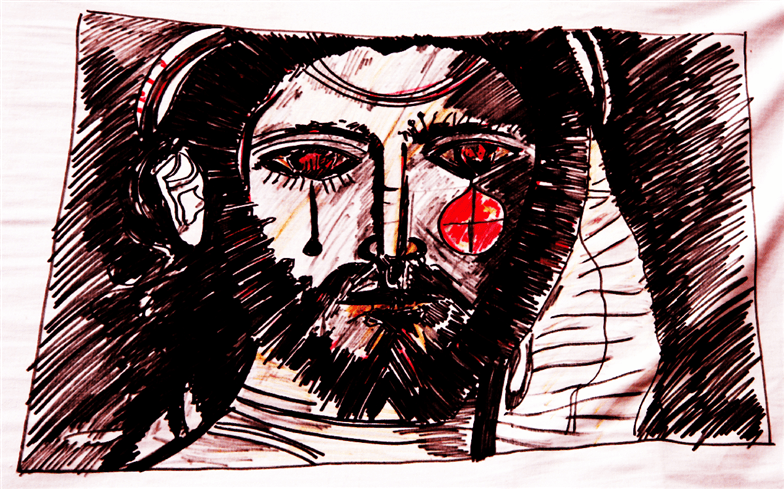A General Assembly Policy Review with possible new applications of Reformed Christian Principles
2011 by Christian Iosso, Advisory Committee on Social Witness Policy View article in PDF (optimal for printing)
View article in PDF (optimal for printing)
[wpcol_1half id=”” class=”” style=””]
Economic Crisis: We Have Been Here Before
The Church has faced economic crisis before. This policy review examines social witness policy affirmations from previous General Assemblies of the Presbyterian Church (U.S.A.) that address topics identified for study and recommendation by the 219th General Assembly (2010). Those topics are contained in “Living Through Economic Crisis,” A Social Involvement Report included in Unbound, Vol. 1 Sept/Oct. It is the usual practice of the Assembly to draw on earlier wisdom when possible; in the current economic crisis, we look particularly to the Church’s reflections during the “Great Depression” of 1930’s and period of de-industrialization of the late 1970’s into the mid-1980’s. At the same time, a policy review also seeks to identify new areas unaddressed by earlier Assemblies or in need of up-dating. That work of updating was explicitly done in terms of the broad “social contract” of the United States in “A Social Creed for the 21st Century,” adopted in 2008 in the Centennial year of the first ecumenical social creed.[1] The Presbyterian Church’s national programmatic response to concerns for the working and immigrant poor dates back to 1903, with the formation of the Workingmen’s Department, so today’s call to apply the Gospel to a new kind of economic crisis for both society and church has much to draw upon.
The Reformed Ethos in the Church’s 20th Century Economic Witness
Calvin’s views are frequently cited, often drawing on the definitive work of Swiss scholar Andre Bieler, to indicate the tradition’s deeply biblical and post-feudal approaches to vocation, money (and usury), commerce and government.[2] The accountability of all power to the common good or whole society is to be embodied in democratic structures, particularly in political life, but the 20th Century statements produced by the Church also track the growth in the power of industry, the market, and corporations, and corresponding changes needed in the role of government and witness of the church. The roles of other institutions are sometimes noted, but none are seen to play the government’s overarching role in social protection and correcting for business cycle and other market limitations.
The Industrial Revolution
Presbyterians responded to the industrial revolution, in part, by leading it, and the names of Presbyterian industrialists like Andrew Carnegie remain etched on church plaques in Pittsburgh, Cleveland, Chicago, and many other cities. At the same time, Presbyterians were active in the Social Gospel movement of the late 19th and early 20th centuries, in opposition to Social Darwinism, and in social reform movements; the longtime head of the Socialist Party, Norman Thomas, came out of the Presbyterian pastorate. The General Assembly’s initial ethical statements in the 20th Century were made in conjunction with the ecumenical movement, as in the adoption of the Social Creed and subsequent updating of it, particularly the 1932 version. Alongside the movements of moral welfare (prohibition, anti-gambling, Sabbath-preservation), women’s suffrage, and anti-lynching efforts in the Presbyterian Church in the U.S.A. and the United Presbyterian Church in North America (which united in 1958), the ecumenical movement kept a witness for what became social security, workplace safety regulation and the end of child labor. The mainline Protestant and historic African-American churches kept up their advocacy for these economic reform measures from the turn of the century through their successful enactments in the 1930’s and 1940’s, joining with Roman Catholic leaders at times in support of workers’ rights to organize.[3]
[/wpcol_1half] [wpcol_1half_end id=”” class=”” style=””]
Following the beginning of the Great Depression in 1929, General Assembly statements of the early 1930’s began by updating the ecumenical—mainly Methodist—Social Creed originally written in 1908 and adopted by the Presbyterian Church in 1910. Its first two affirmations were broadened beyond the specific problems of industrialization by the 1932 Assembly:
- “Practical application of acknowledged Christian principles to the acquisition and use of wealth; subordination of profit to the creative and cooperative spirit; observances of such social plans and control as are involved in the economic process which operates for the common good.
- The right of all to an opportunity for self-maintenance; a wider and fairer distribution of wealth; a living wage as an irreducible minimum together with a just participation by the worker in the profits of the industry in which he or she is engaged.” (note inclusiveness!)
The next two General Assemblies extended this ethic of public responsibility further. A new list of affirmations from the 1934 Assembly:
- That new motives besides those of money-making and self-interest be developed in order that we may develop an economic system more consistent with Christian ideals.
- That competition as the major controlling principle of our economic life be reexamined, and an attempt made to secure rational planning in our economic life.
- That our natural resources and economic institutions be considered as existing for the public good and such plans for ownership and control be developed as will lead to the best use in the interests of all.
- That cooperative economic life be developed on an international scale…
This was followed by several reaffirmations of the rights of labor to organize, opposition to materialism, property rights conditioned by community needs, then “That men and women must be counted as persons, not as mere hands; that they must have some active part in the control of the industry to which their lives are given.” The final two affirmations called for “a universal system of unemployment insurance” and for the church’s ministers to have such a system as well. The 1935 Assembly added to these concerns a flat out call for the “abolition of unemployment.”
The 1937 Assembly summed up the church’s response to the continuing economic crisis of their time:
It is the task of the church to get the facts before the people so that they may know what it is they face. Periodically recurring depressions with their devastating effect upon the morale, bodies, minds and souls of men, the inequitable distribution of the fruits of industry with a large proportion of families receiving an income insufficient to maintain a family in health and comfort, the concentration of control and power in the hands of a few and the temptation of that group to exploit the many for profit, the denial of fellowship which grows out of vast inequalities—these are some of the elements in our present social order, which are incompatible with the Christian ideal of the Kingdom of God. The church appeals to the consciences of men to correct these abuses.
[/wpcol_1half_end]






Unbound Social